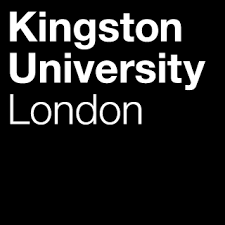Foundations in Neonatal Practice

10 Sep 2025 (Intake closed)
Apply by: 27 Aug 2025
*The advertised teaching dates are provisional, and subject to change*
10 Sep 2025 (On Campus), 17 Sep 2025 (Online), 24 Sep 2025 (On Campus), 01 Oct 2025 (Online), 08 Oct 2025 (On Campus), 15 Oct 2025 (Online), 22 Oct 2025 (On Campus), 29 Oct 2025 (Online), 05 Nov 2025 (On Campus), 12 Nov 2025 (On Campus)
08 Apr 2026 (Available)
Apply by: 25 Mar 2026
The advertised teaching dates are provisional, and subject to change
08 Apr 2026 (On Campus), 15 Apr 2026 (Online), 22 Apr 2026 (On Campus), 29 Apr 2026 (Online), 06 May 2026 (On Campus), 13 May 2026 (Online), 20 May 2026 (On Campus), 27 May 2026 (Online), 03 Jun 2026 (On Campus), 10 Jun 2026 (On Campus)
Course overview
*The advertised teaching dates are provisional, and subject to change*
This module is the first of two modules for healthcare practitioners working full-time or part-time within the neonatal unit to be recognised as qualified in speciality (QIS). This module can be taken as a stand-alone module for other healthcare practitioners that work within the neonatal unit wishing to update their knowledge and skills. The delivery of acute neonatal care is dependent upon a sound theoretical knowledge underpinning neonatal anatomy, physiology, and applied pathophysiology. This module will provide the novice practitioners to apply these core principles to develop their clinical knowledge and skills in the care of the neonate. It will also enable the learners to establish therapeutic relationships with the parents and the multi-disciplinary team using appropriate communication and interpersonal skills. Finally, the module will enable the learners to develop their reflective skills and further their evidence-based practice in the delivery of holistic, safe, and effective neonatal care to the infants and their family in a low intensity setting.
This module adheres to recognised frameworks and standards to ensure high-quality, effective neonatal nurse training. These include the British Association of Perinatal Medicine (BAPM) (2012) ‘Matching Knowledge and Skills for Qualified in Specialty (QIS) Neonatal Nurses,’ the Royal College of Nursing (RCN) (2015) ‘Career, Education, and Competence Framework for Neonatal Nursing in the UK,’ and the latest Health Education England (HEE) (2021) Quality Framework, which identified disparities in the content and delivery of QIS programs across England. These disparities between the programmes, led to the reduction in the transferability of knowledge and skills between units and trusts impacting the consistency of care provisions. In 2024, NHS England has released a unified framework for neonatal QIS education for neonatal nurses to address the previous concerns highlighted in 2021. Under this new framework, higher education providers are expected to work collaboratively with neonatal operational delivery network to ensure these standards are embedded to push for consistency within the neonatal services in England.
Aims
The module aims to equip students with a comprehensive understanding, confidence, and proficiency in the fundamental aspects of neonatal care. This includes an in-depth study of neonatal anatomy, physiology, and applied pathophysiology, enabling students to effectively care for, assess, and manage infants in a low dependency setting.
How you will learn:
This module is delivered using a blended learning approach which integrates a variety of on campus and online activities, supported by Canvas, the University’s virtual learning environment. A variety of activities are used to engage you in critically exploring key topics, and completing formative tasks throughout the module helps you stay on track with your learning and receive feedback on your understanding of the content. A sense of community is developed and maintained with frequent opportunities for peer learning, enabling you to share your practice experiences and to learn from each other.
Academic writing and critical thinking skills are developed through ‘The Critical Thinking Skills Toolkit’ and other academic practice activities embedded within the module, that have been designed to nurture the skills needed to facilitate you to become a thoughtful, objective, and reasoned thinker. This will help you tackle the assignment(s) confidently, understand marking criteria, use evidence, take a reasoned approach, make structured arguments, and engage with other points of view.
Assessment Methods
A reflective essay (2500 words) and a Competency assessment document
Accredited by




Learning Outcomes
Demonstrate an in-depth and systematic knowledge of foetal and neonatal adaptation and development through a systems approach, focusing on applied pathophysiology as well as proficient, holistic patient assessment.
Apply a deep and systematic knowledge of anatomy, physiology, and applied pathophysiology to assist families in understanding their infants’ conditions, care, treatment, and management in line with current and changing neonatal practice.
Integrate proficient communication skills and collaboration with parents and the multidisciplinary team, while upholding diversity and inclusivity as well as ensuring holistic care of the neonates and their families.
Apply and justify the advanced clinical skills required for the neonatal healthcare practitioner to plan, prioritise, deliver, and evaluate safe and effective patient and family-integrated care, in a low dependency setting.
Review and justify current frameworks and the range of appropriate support services available to meet the physical, individual/personal, emotional, and psychosocial needs of the neonate and their families and enable their use.
Apply deep and systematic appraisal of the wider contemporary evidence and research, moral, legal, and ethical considerations as well as autonomous decision-making that underpins the delivery of care for the neonate and their family.

Course details
Downloads
Prerequisites
Programme Entry Requirements which specifically includes the following :
• be NMC registered nurses or midwives, or HCPC registered professionals.
• be employed in a neonatal setting for the duration of the programme.
Most learners should commence a pathway to QIS completion shortly after their employment within a neonatal setting.
Funding
£2,345.00
Self-funding students will need to make a one-off payment for the module via our secure payment portal before the online enrolment process.

Make an enquiry
Make an enquiry
